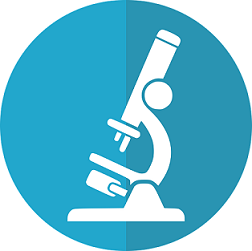
As one of the most prestigious and demanding career paths of all, gaining a job in the science industry requires a great deal of time and dedication. If you have a passion for science and always wanted to pursue it as your field of work, we’ve put together a guide on how to get a job in science.
Decide which industry you’d like to work in
The first important question you need to answer is which field of science would you most enjoy working in. With such a wide a varied range of science industries to choose from, it can be difficult to decide which one is best for you at first.
Here are a few of the main science industries you can choose from:
- Biology
- Physics
- Chemistry
- Geology
- Clinical Science
- Data Science
- Astrology
- Ecology
- Zoology
- Biochemistry
School usually teaches you a range of different sciences, which may have given you a taste of each of these industries. However, if you don’t understand a certain area, it’s best to research it thoroughly before ruling it out. This could be the science industry you are best suited to.
To make this process a bit more fun, we’ve created a quiz to help you decide which scientific sector is right for you:

Once you’ve made a firm decision on your ideal science industry, it’s time to work towards pursuing this path.
Gain the relevant qualifications
The next step after deciding on the industry you most enjoy is to consider which job role you're best suited to. In every science industry, there’s a wide variety of different science jobs to choose from, from rocket scientist to lab technician.
Not every scientific job requires the same qualifications, so an important stage in gaining a science job is to ensure you are suitably educated in that field.
Here’s a brief example of the qualifications needed for a range of different science jobs.
*Note: qualification need may differ for job roles in different companies.
Science Job Role
|
Qualifications Needed
|
|
Research Scientist
|
Masters Degree in a science related field. |
| Lab Technician |
Certificate Program or Associates Degree |
| Clinical Trial Manager |
Bachelor's Degree |
| Laboratory Assistant |
At least 4 GCSE's (A*-C grades) |
|
Medical Scientist
|
PHD in Biological Sciences |
As you can see, the job role you decide on has a large impact on what qualifications you need. You do not need a degree as long as you are a hard worker and willing to work your way up in the company.
However, many of the higher position science job roles will require you to achieve either a bachelor’s degree, a masters or a PhD. To get a job in science, you need to figure out which job role you’d most like to do and aim for the qualifications needed for that area.
What skills or traits do I need to get a science job?
The skills you need to get a science job largely depends on the job role you are seeking. If you’d like to work in biological science, you will need to have a keen understanding of human or animal biology and perhaps more specialist skills, like the ability to dissect. If you’d like to be a scientific engineer, you may need specialist research and technical skills.
However, the traits a scientist needs are quite similar across the board. Here’s a look at a few personality traits you’ll need if you want to pursue a job in science.
Logical Thinking
Scientists need to think about situations logically in all scenarios. They need to provide logical solutions, predictions and conclusions to provide meaningful research and contributions to science.
Problem Solving
One of the main purposes of science is to solve problems. Chemists work to create medicines which can help heal people worldwide and astrologist help us understand the universe around us.
Enthusiasm
Jobs in science require a lot of dedication and patience. If you’re not enthusiastic about the subject, you’ll struggle to keep on persevering, which is needed for a job in science. A lot of trial and error occurs in science jobs.
Objective Thinking
Those who are able to use objective thinking are able to think outside of the box and find solutions to problems others may not have thought of. The ability to be an objective thinker means you do not get swept away with the emotions of a situation and will be able to make a logical decision based on facts and figures, which is important for a job in science.
All of these traits are desirable in a scientific job role. If you feel you naturally have these characteristics, you’re one step closer to your dream job in science.
Where can I get experience for a job in science?
Most jobs require experience prior to application, so it’s a good idea to gain some experience before you start looking for a job in science.
The science industry is highly competitive, so even if you have the qualifications and the skills, you may miss out on the job due to lack of experience. Work experience in a relevant field will make your CV stand out from the rest. Work experience will give you a taste of the job and an understanding of what the role entails.
If you need a degree for your chosen scientific role, try to find a course that offers a sandwich degree. These degrees are typically 4 years long, rather than the standard 3-year course, and will provide you with the opportunity to try out a year in the industry.
Some universities will provide a compulsory placement and others will let your source your own company to work at for a year. Either way, this is one of the best places to get quality work experience.
However, if you’re not doing a sandwich degree, here are a few ways you can gain work experience:
- Ask your local job centre if they know about any work experience placements in science
- Talk to local schools, colleges, universities to source work experience opportunities
- If you’re in school, ask your job mentor how you can find work experience
- Take a look at local science apprenticeships
How do I apply for a job in science?
If you have your qualifications, skills and experience checked off on your list, it’s now time to start hunting for that science job.
First things first, you need to make sure you have your CV laid out appropriately. As with all CV’s, it should be to the point but should not miss out anything important. All relevant experience should be listed and try to add a bit of personality where applicable. Employers go through hundreds of emails from potential candidates and it’s the unique features which make a CV stand out.
You need to ensure your CV is the right length too. The length is dictated by the level of your qualifications – therefore, if you reached GCSE/A-Level your CV should be 1 page long, Bachelors/Masters can be 2 and a PhD level can be more.
We’ve put together a CV advice tips page which should help you out on which sections to include and how you can write them.
Secondly, you need a great cover letter. Most - if not all – science jobs now require a cover letter to let the company know why you’re applying for the job and anything extra that was left off your CV.
The cover letter on your science job application is a key opportunity to really stand out from the crowd. A good cover letter will let the company know you’re passionate about this job and will be a valuable member of the team.
Here are a few things to include in your cover letter:
- Why you are applying for the job
- Why you have chosen that company
- What you think you will bring to the company
- How you fit the job specifications
- Examples of how you have shown what they’re looking for
However, try to keep it as concise as possible. This is your first impression to the recruiter and they’re not going to read an essay. Try to keep your cover letter between half a page and a page long. That way, you will be able to write punchy statements that will grab the employer’s attention.
Applying for a job in science can be difficult, but there are plenty of resources and companies that will be willing to help.
Here at Hyper Recruitment Solutions, we specialise in finding the right science job for you. Our aim is the place the right candidate in the right job and we have a team of specialists on hand to help you achieve your ambition.
To find out more about HRS and how we can help you get a job in science, take a look at our about us page. We hope this article will be a helpful resource to help you find the science job of your dreams.
